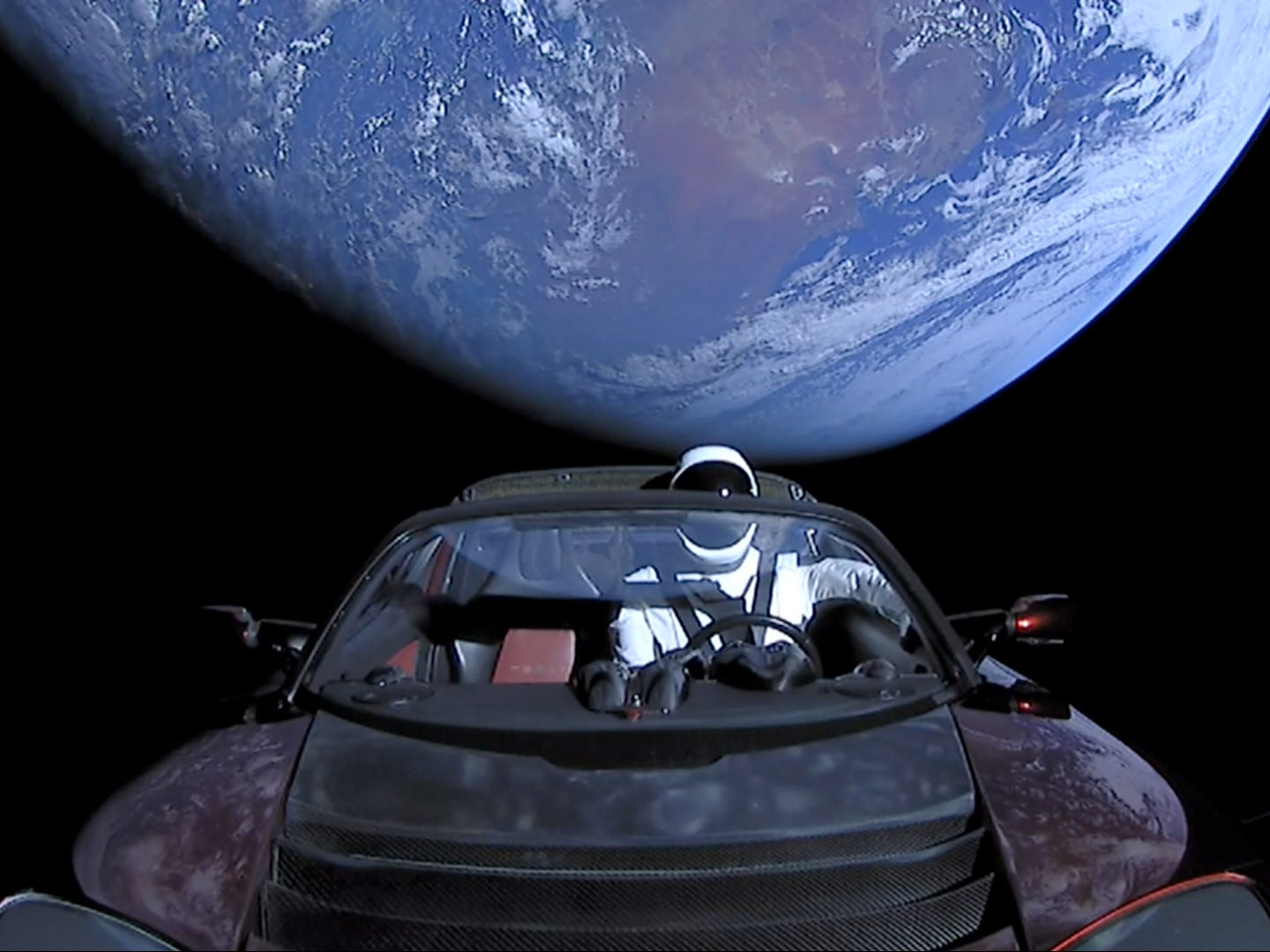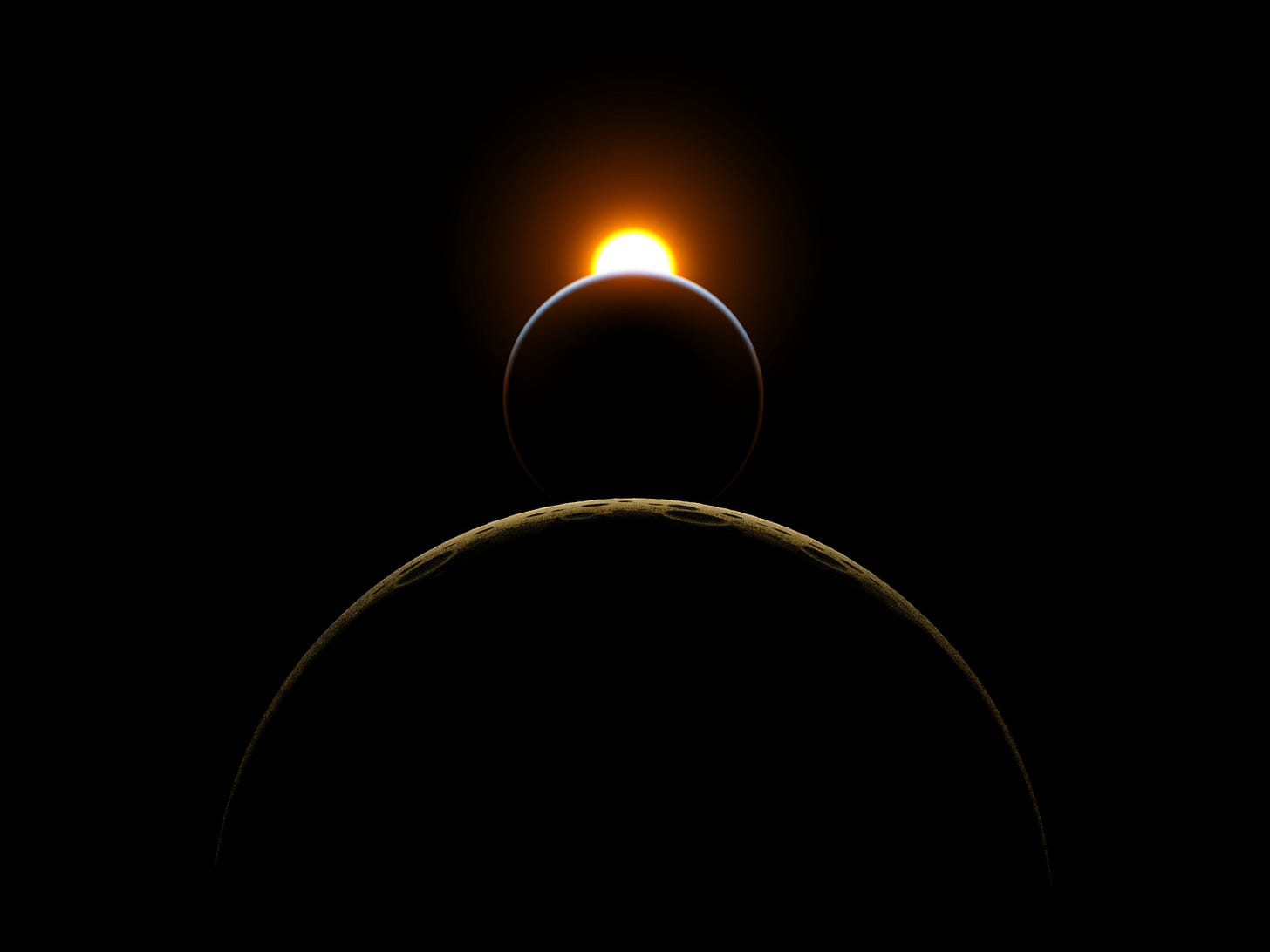Irrational mechanics, draft Ch. 2
Astounding universe, amazing grace.
Greetings to all readers and subscribers, and special greetings to the paid subscribers!
Please scroll down for the main topic of this newsletter. But first:
I’m reading (actually, avidly devouring) Walter Isaacson’s biography of Elon Musk.
Since I already know the outline of the story I’m jumping from LA to Starbase at Boca Chica Texas, from SpaceX to Elon’s women, from politics to Tesla, from Starlink to Ukraine, from Elon’s favorite science fiction and thought on Artificial Intelligence (AI) to Neuralink and xAI, from PayPal to Elon’s leadership style, from Elon’s inner demons to X and, of course, Elon’s vision of expanding the sphere of human life and consciousness to Mars and beyond.

I’ve read about half of the book so far. I’ll write more about the book when I finish reading it, and publish a podcast as well.
My first impressions:
The best summary of the book is the opening quote. “I reinvented electric cars and I’m sending people to Mars in a rocket ship,” says Elon. “Did you think I was also going to be a chill, normal dude?”
If this were the story of a science fictional superman who single-handedly changes the world I’d enjoy it but I wouldn’t be able to suspend disbelief in a character that does more in a week than others do in a lifetime. But this is the real world and Elon is a real person, larger than life, with an awesome integrated grand vision.
The man I see in the pages of the book is an extremely smart superman with a relentless drive to do great things and more energy than a star, but he’s also an abusive asshole at times.
My favorite and optimal mental state is one of calm serenity. I don’t think this mental state is even accessible to Elon. Isaacson’s Elon is in a permanent storm, driven by demons that push him to do more more more and faster faster faster to advance his grand vision.
I totally support Elon’s quest to make humanity multi-planetary and I regret that I never worked for him at SpaceX. If I were 20 years younger or even 10, I’d have tried very hard to get into SpaceX in the early 2000s.
I’d probably have left soon, or more likely Elon would have fired me soon. Not for lack of loyalty and support, and not (I hope) for lack of skills, but for lack of single-minded commitment. I would have done my very best, but I wouldn’t have been able to forget other things (e.g. family, rest) and give it all to the work. But this is what Elon demands from his workers.
So I wouldn’t have lasted more than a few months at SpaceX, but then I’d have been proud of those few months. Today, I would be thinking of my little contribution to the beginnings of space expansion under Elon’s command. And I’d be happy, for knowing that we are beginning to expand into space and I have contributed something would give me the serene happiness that I need.
Isaacson doesn’t hide Elon’s human flaws (aren’t we all human and flawed?) but the man in the story is a great man. And at this moment the world doesn't need yet another critical theory of Elon. At this moment the world needs more enthusiastic, unapologetic praise for Elon and for his quest to make humanity multi-planetary.
Too bad I never worked for Elon. But I just realized that it is Elon who works for me. Here’s a man smarter than me, much more driven and energetic, who uses his own huge financial assets and works his ass off with tremendous determination and energy to advance the realization of MY dreams.
Thanks to my best employee!
My only demand is that Elon keeps doing what he is doing. If he stops, I’ll fire him and stop paying him the 80 bucks/year of my premium X membership. But I hope to continue paying until I see the first Starship land on Mars.
So here’s a very early draft of Chapter 2 of my new book “Irrational mechanics: Narrative sketch of a futurist science & a new religion” (2024):

2 - Astounding universe, amazing grace
We live in an astounding universe and there’s some amazing thing in the currents of reality that can be called grace. We’ll explore these things in the rest of this book.
But if you are a science fiction fan you have probably noticed that the title of this chapter (which, by the way, was the first title I had in mind for this whole book) pays homage to science fiction.
“Astounding Stories” and “Amazing Stories” were two leading “golden age” science fiction [Nevala-Lee 2018] magazines that inspired generations of readers with a cosmic sense of wonder. Many of those readers then became scientists and engineers, and contributed to developing amazing science and technologies.
Good science provides ideas to science fiction writers, and good science fiction provides inspiration and motivation to scientists. Much has been written on the unique potential of science fiction to inspire scientists and the spectacular achievements of the young science fiction fans who then choose to become scientists and engineers, and I won’t elaborate here. But I want to say that good science fiction provides inspiration and motivation to all of us, for in the great science fiction story of tomorrow’s world that we are all writing together there’s room for everyone’s interests and aspirations.
Science fiction also provides good ideas to scientists now and then. Many scientists are science fiction fans. Not all scientists: some don’t care for, or even openly despise science fiction. But I have the impression that those scientists are really bureaucrats of science [previous chapter]. Many great scientists (not to mention great engineers) love science fiction, and some are also science fiction writers.
One could be forgiven for assuming that new concepts and key ideas flow only in one direction, from science and technology to science fiction. But now and then science fiction writers produce narrative sketches of new technologies that are then realized by engineers and deployed in the world. Also, science fiction writers often craft the simplest and best conceptual and visual explanations of science for the public at large. For example, a science fiction novel by Greg Egan [Egan 2002] has been recommended as one of the clearest pictures of loop quantum gravity by one of the originators of the theory [Chapter 7].
I have spent countless happy hours immersed in science fictional universes. Suspending disbelief is essential to enjoying science fiction: you don’t need to believe in the factual reality of a story, but you do need to feel that the story is plausible enough and something like it could well be or become true. The best science fiction works feel true in this sense.
Some of the best science fiction shows strange cosmic phenomena, mysteriously awesome entities, and ultra-advanced technologies that are “magic” in the sense of Arthur Clarke’s third law, which states that any sufficiently advanced technology is indistinguishable from magic. A full list would be long, but think for example of the planet-sized sentient ocean that can suspend and overwrite the laws of physics in Stanisław Lem’s “Solaris” [Lem 1970], the vastness and weirdness of Liu Cixin’s cosmos [Liu 2014 and sequels], the collaborative Orion’s Arm universe [Chapter 8 of Prisco 2021], and of course “2001” [Clarke 1968] by Clarke himself.
Of course these science fiction writers don’t and couldn’t provide full descriptions and explanations of things that we don’t and couldn’t understand yet, but only narrative sketches. These narrative sketches, however, give readers the sense of mystery that the Italian futurists [previous chapter] wanted from science, a never ending mystery that future science will explore.
In this book I outline my personal philosophy and my personal religion, which is inspired by the futurist science of irrational mechanics [previous chapter] and science fiction. Do I believe in my personal religion? Yes, in the sense above: I think it is plausible enough and something like it could well be or become true. So my religion is science fiction based on science and hopeful expectations.

